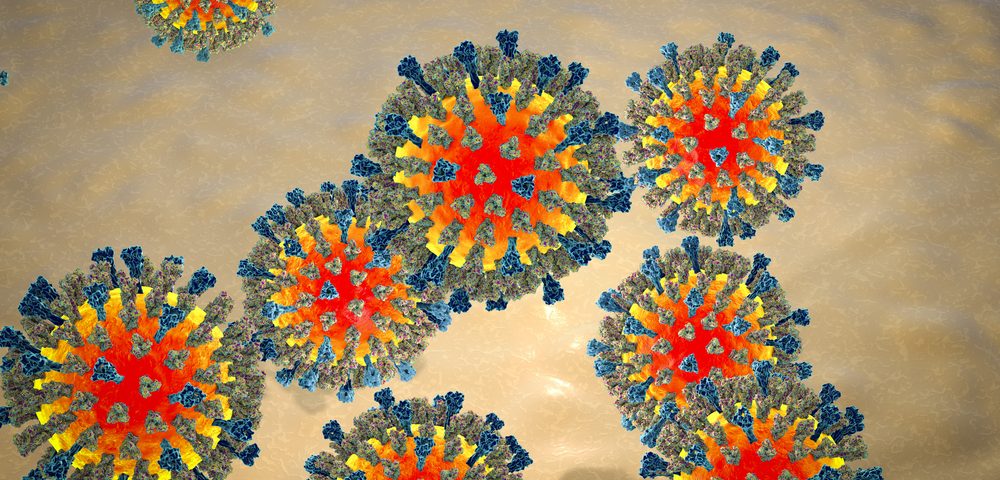Certain strains of the measles virus could potentially be used to treat mesothelioma because the virus selectively targets a factor found on the surface of mesothelioma cells, researchers from the University of Minnesota report.
In fact, scientists at the Mayo Clinic are studying this approach in a Phase 1 clinical trial (NCT01503177) that is currently recruiting patients with pleural mesothelioma.
In its study, “Cap-dependent translational control of oncolytic measles virus infection in malignant mesothelioma,” the research team with the University of Minnesota and the Mayo Clinic also found that boosting the tumor’s protein-making machinery would augment the virus’ effectiveness.
The work, published in the journal Oncotarget, showed that a type of the virus, called the Edmonston vaccine strain, reduced the viability of several lab-grown mesothelioma cell types. In three out of four instances, the treatment had a rather extensive impact on cell survival, researchers reported.
Experiments showed that the virus triggered what is known as apoptosis — a cellular self-destruct program.
When researchers used two different approaches to make the tumor’s protein-making machinery run at a faster pace, they found that the treatment became more efficient in killing cancer cells. This is because an invading virus is also dependent on this machinery to produce their own proteins.
Viruses hijack cellular processes to build more viruses. An infected cell typically dies to let the newly made viruses out, allowing them to infect new cells. The team could confirm that the increased cell death under these circumstances was linked to higher levels of the virus.
But how does a measles virus infect only a tumor, sparing healthy cells?
The team showed that this type of virus needs a protein, called CD46, to enter tumor cells. This molecule is usually found in large numbers on the surface of mesothelioma cells, but only in low numbers on healthy cells. Earlier research also demonstrated that, for the virus to efficiently infect cells, a certain threshold of CD46 is required — a threshold reached in mesothelioma.
These previous studies also suggest that this measles strain can use another molecule to enter cells. The research team did, however, not find evidence that this factor was involved in virus processes in the studied mesothelioma cells.
These characteristics, researchers argue, support the further development of treatments using this type of measles virus in mesothelioma, including the ongoing clinical trial at the Mayo clinic in Rochester, Minnesota (NCT01503177), which is being done in collaboration with the National Cancer Institute. More information is available by clicking on the study’s identification number.



One comment